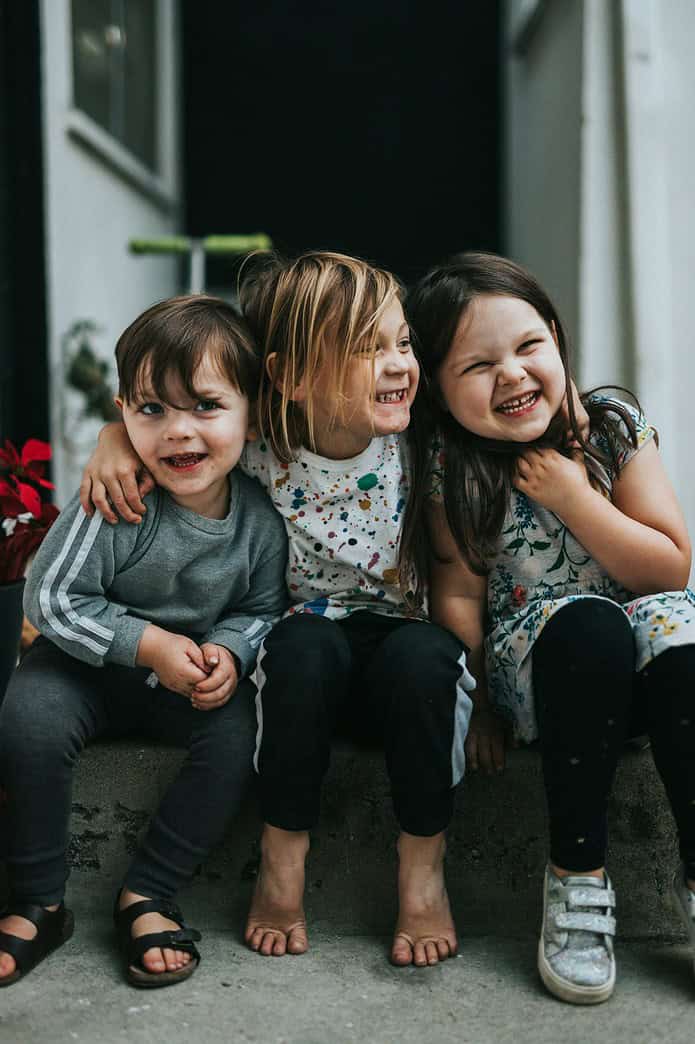The primary responsibility of parents is to teach a child how to be functional in the world. They have to train the child in basic interactional skills such as emotional appropriateness, responsibility, decision-making, perseverance, talking clearly, independence, manners, and moral values. Most of these tasks have to begin early to have the children gain the confidence and necessary skills to be considered normal. This is an incredible agenda to establish in the first three years.
Once the groundwork is seeded the child is ready to branch out with his peers but not before the parent’s instructions for their children. This gives them a heads up in becoming socially acceptable. Children become more isolated and shunned if they have not learned appropriate responses from their parents before going to preschool.
Around the age of three years the child learns from studying and imitating other children in the environment. Preschool children select certain youngsters as role models. The choice a preschooler picks to be a best friend is often surprising. There are too many variables, which depend on the child’s particular circumstances. The new found friend may be similar to one of their siblings, a media character they fell in love with or have certain personality traits like laughing or smiles that makes her feel happy and comfortable.
The maturing of the individual child is a mixture of innate attributes, family and other authority figure expectations and standards as well as the knowledge learned especially from their peers. The child they admired the most, consciously or unconsciously, is the individual most likely to be imitated. As their idol changes so do their attitudes, thinking and body language. These modifications are not readily noted but serve to slowly shape their social skills and overall personality.
This interaction with peers is a growing process for children. However, in our current culture a major deterrent for children getting together is parental fear. Modern parents view the shielding of their child from any danger as their top priority. An unsupervised peer interaction of their child with other children is frightening to them. The media highlighting of bullying in our culture has created neurotic parents. They believe they have to hover over their children to protect them from traumatic bullying episodes.
On the other side of the equation, the more contact children have with peers, the more opportunity they have to experience, experiment and learn from others. This enables them to identify what they want to do in shaping their own emerging personality. Children begin to unconsciously copy their own new friends’ smile, way of speaking, walking, laughing, actions, and almost anything that strikes their fancy. They try out new behaviors and attitudes to see how it feels for them without input from adults. They are learning to be more interdependent while building their own personalities.
Most children are incredibly opinionated and critical about peer’s actions. They are unfiltered and hold back no punches. If another child looks weak, an aggressive child will quickly test him to find out how far the fragile child will let him take advantage by pushing him until he realized the other child will not cease. Finally in frustration and anger the naïve child returns the favor by pushing the child back. The game stops at this point. The innocent child learns the reality of peace through strength. This is a concrete lesson in standing up for oneself. It is an unfiltered, direct means of learning the rules of the child-jungle, which helps them establish their behavior patterns in dealing with peers.
This is a major reason an only child is at a significant disadvantage compared to a child coming from a family with siblings. Children tell and show each other things that would be ignored if said by an adult. They learn from each other how to act appropriately. “Don’t cry when you get hurt because you are acting like a baby.” This statement coming from a respected group member is more powerful than having to endure a lecture from a significant adult. Crying is like honey to a bear. It is a signal to the bully to attack.
The best protection a child has is himself. By interacting he will develop the social skills and abilities to handle peer issues. Excluding a child from independent relationships with his peers will not only delay his social maturity but could cause the child to be awkward or even a misfit among children.
Domenick Maglio, PhD. is a columnist carried by various newspapers and blogs, an author of several books and owner/director of Wider Horizons School, a college prep program. Dr. Maglio is an author of weekly newspaper articles, INVASION WITHIN and the latest book entitled, IN CHARGE PARENTING In a PC World. You can see many of Dr. Maglio’s articles at www.drmaglioblogspot.com.

